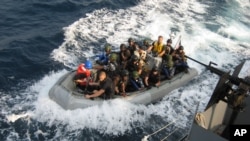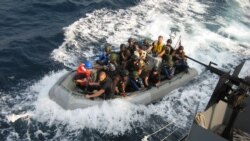Angola hosted an International Conference on Maritime and Energy Security in the Gulf of Guinea, from October 7th to the 9th.
In an op/ed published October 8th, in the Jornal de Angola, U.S. Ambassador to Angola Helen La Lime wrote, “This conference is unique and especially important, because it brings together public and private stakeholders from the global maritime and energy sectors and enables them to share international best practices in order to improve regional security coordination and strengthen public-private security partnerships.”
The Gulf of Guinea is one of the most dynamic regions in the global energy sector and is of critical importance for the economic development of much of the Atlantic Coast of Africa.
Revenues derived from hydrocarbons provide many African states in the region with a strong financial base to fund development initiatives. Also, many of the trade routes connecting Africa with the rest of the world pass through the Gulf of Guinea.
Over the past two years, the States of West and Central Africa have demonstrated commitment to support and protect the development of the blue economy. The 2013 “Declaration of the Heads of State and Government of Central and West African States on Maritime Safety and Security in their Common Maritime Domain”, also known as the Yaoundé Code of Conduct, represents a pioneering framework to collaborate, cooperate, and share information.
The conference provided an opportunity for senior officials from the Gulf of Guinea region to develop strategies to improve maritime safety and security.
The focus was on: interagency coordination; cooperative mechanisms between state institutions and private sector stakeholders; and preparedness for potential maritime emergencies. At the regional level, the conference was an important step in the implementation of the 2013 Yaoundé Code of Conduct.
“The United States,” Ambassador La Lime noted, “congratulates Angola for its leading role on this initiative. All of us, who believe in Africa’s huge potential, we can, and should, continue to work so that the security and protection of the oceans of this beautiful continent become a reality.”






